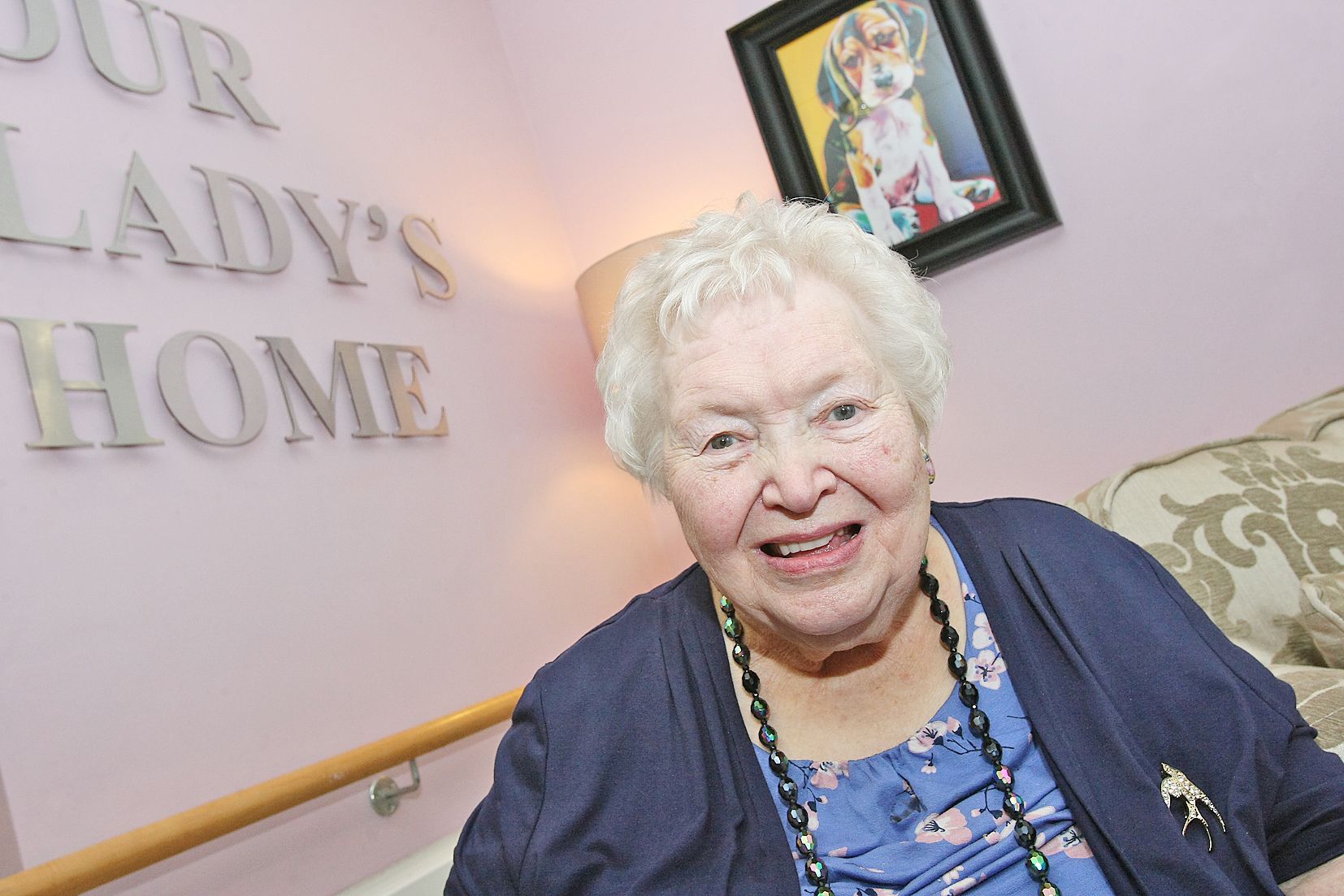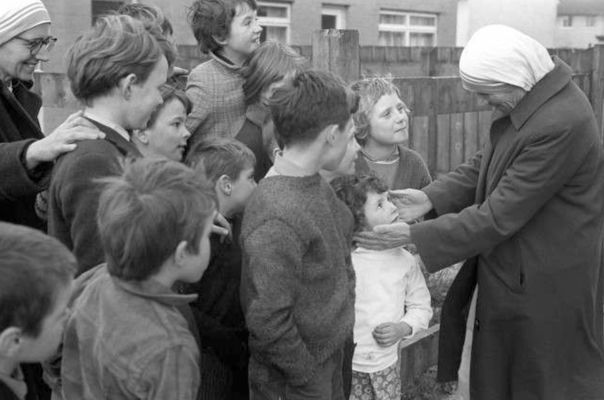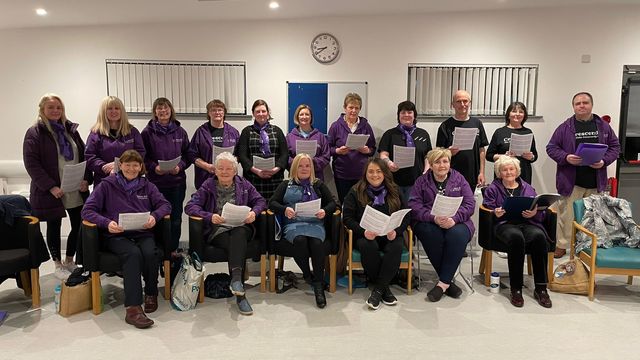THE family of Mary McMullan have remembered her as a wonderful example of the strong women of Belfast who made a difference to people’s lives in the most challenging of circumstances, after she passed away on 20 July, aged 94.
Mary was born in Beechmount in 1927 before moving to Conway Street. She attended Conway Street Primary School before it was burnt to the ground in the 1930s which led to her attending St Brendan’s in Milford Street.
Detailing her love of education, her son John told the Andersonstown News: “She was good at school and the Master was very complimentary about her literacy and numeracy but sadly education in those days was designed for men. Women were deemed to have lesser responsibilities beyond their household and rearing their family.
“Like many women, she was very able but the system did not support the growth of their education which was one of the reasons that ensured her children were able to go as far as they wished in relation to their own education as she valued it so much.”
Mary married her husband Jerry in March 1951 and began a family. Discussing what life was like, John said: “My mother and father lived with a maiden aunt in Lady Street then we all came along. The maiden aunt had the front bedroom and we had the back bedroom. That meant that mum and dad were in one double bed and the children were all sleeping upside down in the other double bed.
“My mother made sure her bills were met but like many women at that time, they were mantel piece economists. She kept all the money for the weekly people coming around on the mantel piece. There was money for the milk man, the bread man, the insurance man and the shillings for the gas metre.”
COMMUNITY: Mary McMullan, Falls Community Council, presents John McGinley, manager of Beechmount Leisure Centre, with the Spring 5-a-side Soccer tournament trophy in April 1979 
Mary McMullan was a community worker before community workers came into existence. Among her many achievements she established the first Andersonstown Job Centre in the mid-1970s and was a founding member of the Falls Community Council and Greater West Belfast Community Association.
Mary’s daughter, Mary Hughes recalled how her mother always had an interest in social justice, which would see her recognised for her community work with an MBE in the 1991 New Year’s Honours List.
“She always had a quest for social justice and we were reared on her stories” she said.
“When she was in her teens or twenties she and a crowd of others from the Young Christian Workers went down to Smithfield as they had heard that one of the book sellers was selling what they used to call dirty books.
“This was Mills and Boon type stuff. They gathered up all the magazines and set fire to them. She learned a lesson though that all publicity is good publicity as when it was reported, people went to the stall to buy all of the dirty books.
“She had a very moral sense of right and wrong which I hope she passed on to us.”
John and Mary described how their mother believed that when someone was in need you did your bit to help them.
Mary’s role within the community grew when the McMullan family moved to the Glen Road and she, alongside her husband Jerry, set up a residents' association.
“The challenge to moving to the Glen Road was that the housing estate was built but there were no facilities,” John continued.
“There was no road sweeping, there was no street lights, so they got together realising that something needed to be done. The best way to do that was to organise all of the people who were living there.
“The tenants' association formed out of that and met in our house on a Thursday night. They organised bus runs and dances. They also arranged for the roads to be swept to the junction with Shaws Road so that the council could collect the rubbish.”
FAMILY: Pictured with Mary are her sons and daughters, Gerry McMullan, John McMullan, Mary Hughes, Karen Carlin, Patricia McAuley and Mairead Maguire.
Discussing what life was like when the family moved to the Glen Road, John said: “When we first moved up there were no shops. There was only a van shop and the tenants' association got together and decided that we needed a youth club. The school was used as a youth club, then they negotiated Oliver Plunkett Youth Club which was a portacabin originally.
“They also did a lot of work to establish Glen Community Centre and the children’s play group which she was fundamental in for many years.
“The vacuum that was created through a lack of facilities brought people together in arguing the case for what was needed.
“422 Glen Road, where we lived, was probably Belfast’s first advice centre. People used to come to mum when they had issues with housing or benefits and she would have helped and supported them.”
Mary’s life was turned upside down when her husband Jerry passed away in 1975.
Recalling the impact that this had on their family, John added: “It was catastrophic for us as a family but she stepped up to the plate. Her view was that we were her children and she took on part-time employment to supplement any benefits. She was a lone parent before we knew what lone parents were.”
In later life, Mary returned to her native Beechmount as a resident in Our Lady’s Care Home.
“She was actually on Beechmount Section in Our Lady’s Home which amused her,” John said.
"She remembered where we were as Riddles Field. Where the Irish school is, used to be a field with cows.
“She remembered walking past when it was much more rural and she also remembered the brick factory.
“She was a wonderful example of the strong women in Belfast who made a difference to people’s lives in the most challenging of circumstances. She was a role model for community development and social justice interventions in the modern day,” he added.






